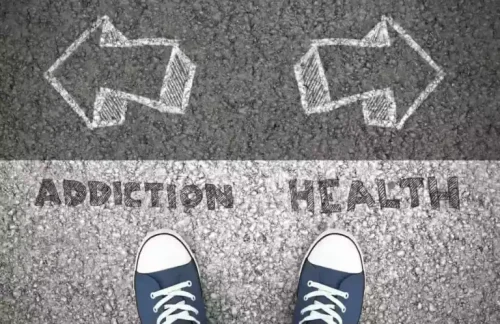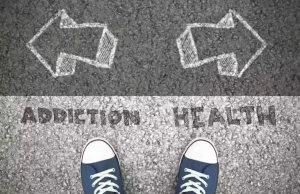Sober living
Does Alcohol Thin Your Blood? Short- and Long-Term Effects

Researchers also found decreased rates of coronary artery disease (CAD) and non-fatal stroke among people who drank alcohol compared to those who didn’t. Doctors and pharmacists can advise people whether they should avoid or limit their alcohol use while taking blood thinners. The safest way to avoid complications is to refrain from exceeding the recommended daily intake of alcohol.
- Heavy drinking with these drugs increases the risk of stomach bleeding.
- It’s best to make decisions about alcohol consumption in consultation with a healthcare provider.
- In the short-term, it can cause a temporary spike, but heavy drinking over time can lead to sustained hypertension.
- Blood thinners are drugs your doctor prescribes to prevent blood clots that can cause a heart attack or stroke.
- According to research, having one or two drinks infrequently is considered safe.
Health Categories to Explore
They have a comprehensive understanding of your medical history and can provide personalized advice based on your specific situation. Drinking to excess also increases your risk of obesity, which poses quite a few health risks of its own. Excessive alcohol consumption can have harmful effects on the body, so it’s best to enjoy red wine in moderation and not rely on it as a sole method for blood thinning or other health benefits. Red wine contains a compound called resveratrol, which has been studied for its potential health benefits. Resveratrol is found in the skin of red grapes and is believed to have antioxidant and anti-inflammatory properties.
- If you have questions about the plusses and risks of alcohol, talk with your health care professional.
- Increasing the level of blood thinners in the body can lead to an increased risk of bleeding.
- Let your doctor know right away if you experience any signs of bleeding problems.
Health Conditions
Ask your doctor if it’s safe for you to drink alcohol while taking blood thinners. Both alcohol and blood thinners like warfarin (Coumadin) thin your blood. Taking both together could compound the anticoagulant effect and increase your risk of bleeding. The above review noted that low to moderate alcohol consumption can decrease platelet activation and aggregation, meaning it may reduce blood clotting in a similar way to blood thinning medications. Some people take medications to prevent the blood from clotting or slow the clotting process. They may refer to them as blood thinners, anticoagulants, or antiplatelet drugs.
- However, the study did not distinguish between red and white wine, which Mukamal said would be interesting to look at more closely.
- There’s also a question of whether red wine delivers enough resveratrol to make a difference.
From Mayo Clinic to your inbox

Your metabolism, weight, and even what you ate that day all matter when it comes to the effects of red wine blood thinner alcohol and how long the effects will last. People who said they drink a lot of liquor also tended to binge drink, which counteracts any helpful effects you might get from alcohol in moderation. If you’re concerned about how alcohol may impact your health and wondering, “Does alcohol thin your blood?” at Bayview Recovery, we offer accessible support. Ever found yourself wondering why that glass of wine hits you a bit differently sometimes? We’ve all heard the buzz about alcohol thinning your blood, but let’s dive into the nitty-gritty and find out if there’s any truth to it. Specific blood thinners, especially in women, may elevate the likelihood of bone loss and osteoporosis.
Limited antioxidants in red wine in particular may increase high-density lipoprotein (HDL) cholesterol, or the “good” cholesterol, reduce oxidative stress, and improve blood vessels. Moderate wine drinkers may see positive effects on blood sugar management, too. None of this advice applies when you’re already on blood thinners. Your doctor should be monitoring how quickly your blood clots with regular tests measuring your international normalized ratio (INR). In the short-term, it can cause a temporary spike, but heavy drinking over time can lead to sustained hypertension. The consequences of having blood that is too thin are a reduced risk of blood clotting but an increased bleeding risk.

Ask the Expert: Common Questions About Alcohol and Blood Thinners

For example, a blood clot can form elsewhere in the body and travel to the heart, lungs, or brain. This type of blockage can lead to life-threatening conditions such as pulmonary embolism, stroke, or heart attack. Blood-clotting in the circulatory system is referred to as thrombosis. Resveratrol might be key to what could make red wine heart healthy. Learn the facts and hype about red wine and how it affects the heart.

Is it safe to drink red wine if I have a blood-thinning medication?
“And research suggests that the body can’t absorb most of the resveratrol in supplements.” This material may not be published, broadcast, rewritten, or redistributed. Bayview Recovery Center provides varying levels of care with a focus on outpatient treatment programs at our Tacoma, WA drug rehab center. Our treatment methods allow our clients alcoholism to have the most accessible and effective recovery experience possible.
What Are the Effects of Drinking Alcohol on the Blood?
When taken to excess, red wine — just https://ecosoberhouse.com/ like any other type of alcohol — can cause serious health problems. But a well-established body of evidence shows that when you drink it in moderate amounts, red wine may in fact be good for your heart. When it comes to the health of your blood vessels, have a conversation with your doctor. Drinking too much and too often can cause a plethora of negative health consequences. Even just drinking regularly for a long time can damage the body and have harmful side effects. While the presence of resveratrol in red wine may have some potential benefits, it’s crucial to consider other factors that can affect blood thickness.
